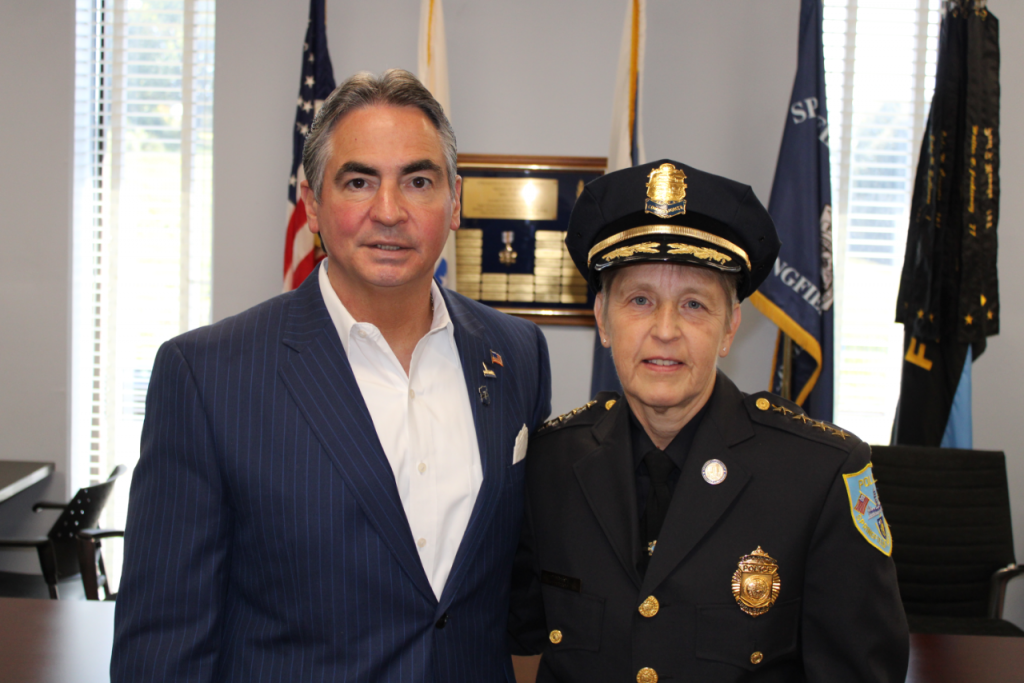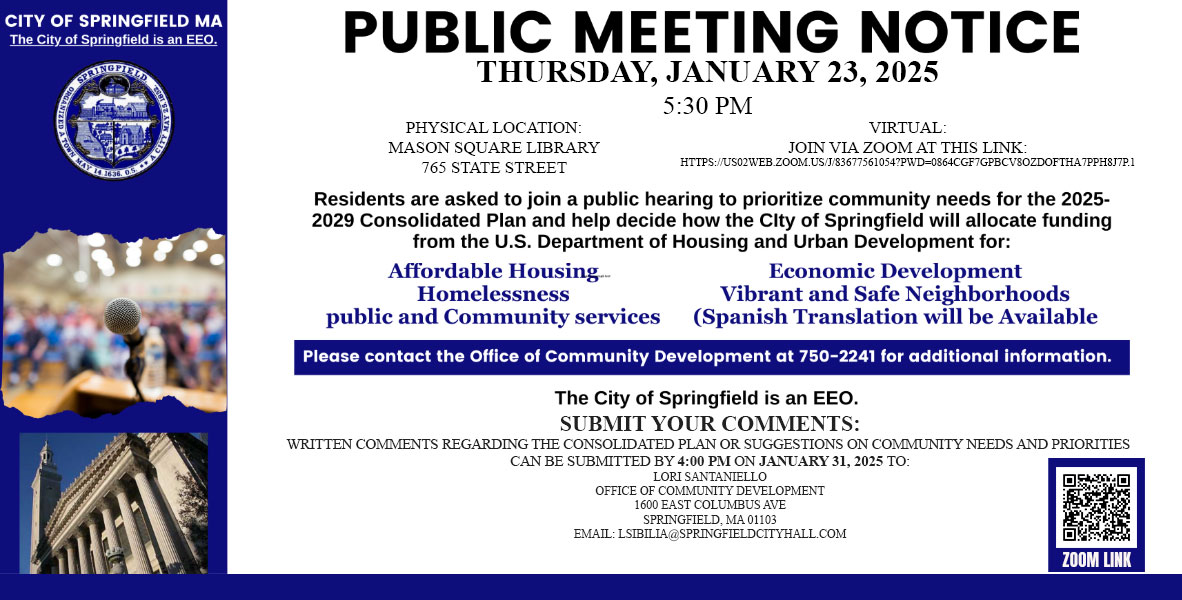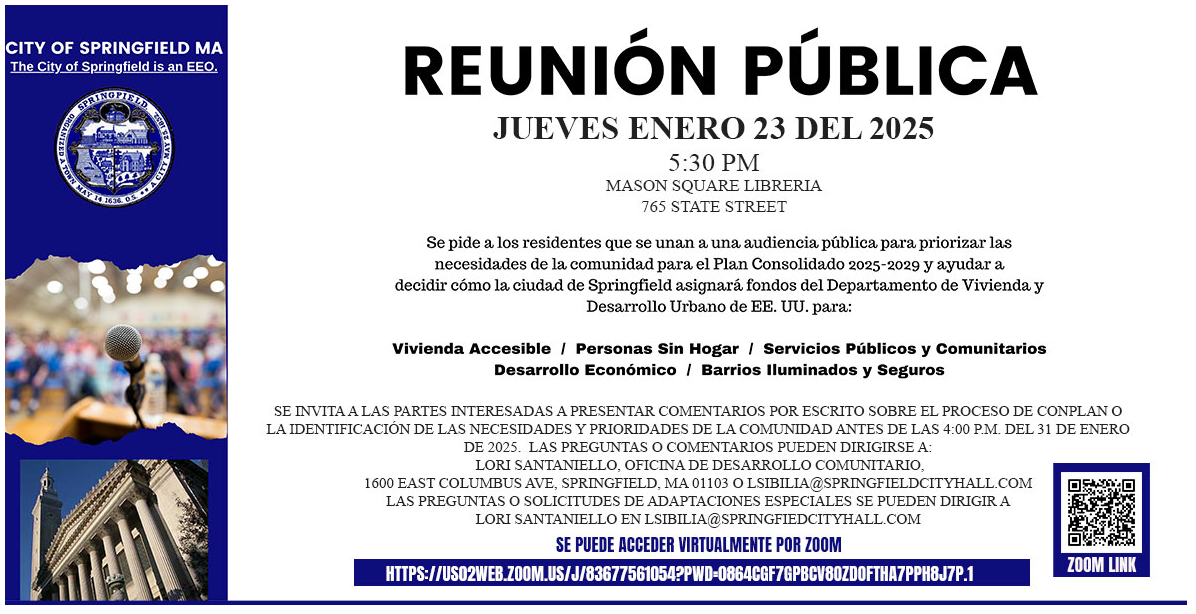
After years of ignoring city ordinance, and the wishes of a predominantly Black Springfield City Council, a Massachusetts judge has ordered City of Springfield Mayor Domenic Sarno to appoint members to the Springfield Police Commission “without delay” to the panel that would oversee the city’s police department.
This ruling comes after the Springfield City Council voted in favor of adopting a police commission twice, both of which Mayor Sarno vetoed.
The Springfield City Council took it a step further and voted to authorize two attorney’s to file litigation against the city to enforce the council’s vote on establishing a civilian board of police commissioners.
City Council President Marcus Williams stated “Today’s decision is a great day for the city of Springfield and I am proud to be serving as President, at the time of this historic rendering. I am very proud of my colleagues who supported this ordinance and stuck to their convictions. This historic decision will lead to a healthier police department, better relations with our communities of color and bring accountability and reform to our police department. This landmark case should not be viewed as Mayor Sarno vs. the Springfield City Council but rather as an opportunity for the city to heal and grow. I urge the Mayor to accept the court’s decision and I am hopeful he will develop the framework to implement the Police Commission.”
The order also comes after numerous calls from community leaders for the city to terminate the contract with current Police Commissioner Cheryl Clapprood. “For the past 40 years, she has been a part of this department,” said Reverend Talbert Swan at a recent press conference on the steps of Springfield City Hall. Swan, a nationally recognized and strong advocate for social change, stated “for the last decade she has served in a leadership capacity with the Springfield Police Department. She is part of the reason we have come to this impasse with corruption and brutality in the department.”
The Council is hopeful that the Police Commission will do a much more effective job in providing some sort of oversight over both the Springfield Police Department and Clapprood, who herself has a marked and questionable history with the department.
In July, the DOJ released a scathing report based on an investigation of the police department’s narcotics unit that covered a two-year period. It found members of the unit often assaulted and punched suspects in the head and neck and routinely escalated confrontations to unconstitutional levels of violence.
The start of a police board would mean the elimination of a single police commissioner role and instead, the Springfield Police Department would have a police chief with a board that would have five civilian commissioners on it.
If implemented, those civilian Springfield residents, who are appointed by the mayor, have the authority to hire, fire, and discipline Springfield police officers. The police chief would oversee the day to day operations of the department instead of a sole commissioner having all this authority like there currently is.
Superior Court Judge Francis Flannery strongly ordered that “Mayor Sarno must without further delay and in good faith endeavor to identify and appoint qualified individuals to serve on the Board of Police Commissioners.” “[I]f there were a conflict between [Sarno’s] authority … and the City Council’s authority to reorganize a department, the conflict was of the mayor’s own making,” Flannery wrote.
Springfield City Councilor and State Representative Orlando Ramos also responded to the court’s ruling. In a statement to the Metro Record he said: As Chairman of Public Safety, I am very happy with the court’s decision on this matter. I have voted in favor of the civilian Police Commission Ordinance several times; in fact, it was the very first piece of legislation I attached my name to when I was first elected to public office in 2013. I did so because I believe it is a system which would allow for more accountability; and it is in line with the reforms many of us have been fighting so vehemently to implement within the Springfield Police Department.
Tom Lesser, an attorney working pro bono for the City Council, called the decision “a great victory.” “The decision fully validates the council’s authority to reorganize the city’s police department — which it’s been attempting to do since 2016, while the mayor has sat by and ignored the ordinances passed,” Lesser said.






